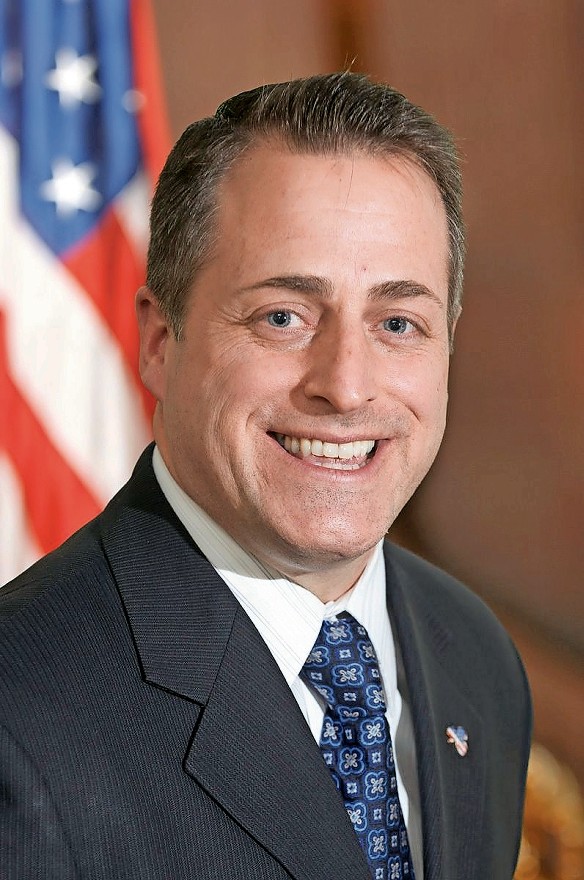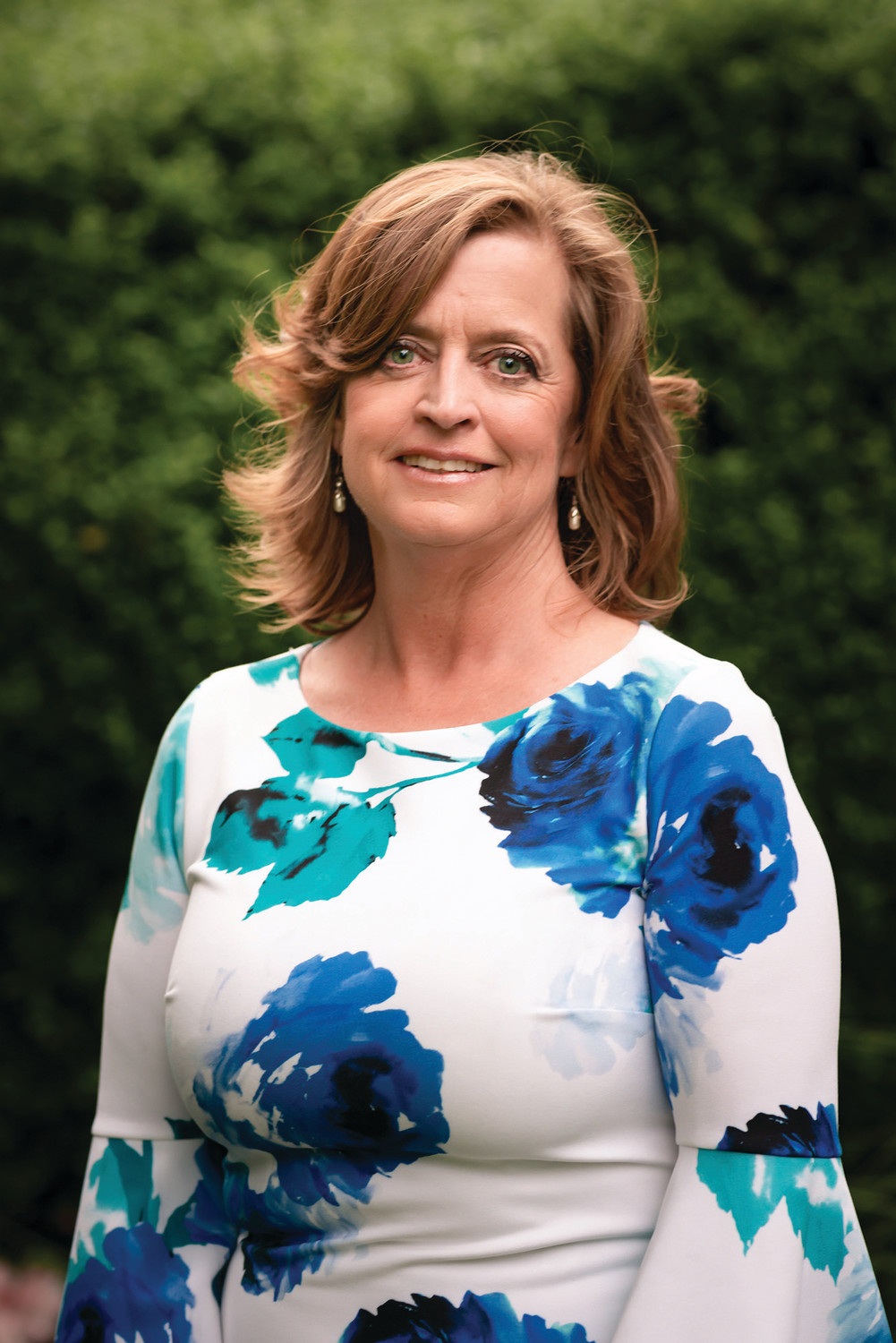Judy Griffin challenges Brian Curran in 21st Assembly District race

Challenger Judy Griffin and incumbent Brian Curran are set to vie for the 21st Assembly District seat on Nov. 6.
Curran, the former village prosecutor and mayor of Lynbrook, was elected to the state assembly in 2010. Griffin is an activist and has previously served as State Sen. Todd Kaminsky’s director of community outreach.
The Herald asked both candidates questions tackling issues that affect residents in District 21, which comprises Baldwin Harbor, Baldwin, South Hempstead, Rockville Centre, Lynbrook, North Lynbrook, Malverne and parts of Freeport, Oceanside, East Rockaway and Hewlett.
Herald: New York American Water recently came under fire for imposing conservation rates that increased residents’ bills by hundreds of dollars. In your opinion, what could be done to ensure that utilities serve their customers in an equitable matter, and to stop a similar situation from happening?
Judy Griffin: Unfortunately for its customers, New York American Water has been under fire this year not only for exorbitant rate increases, but also for its frustrating and unresponsive customer service practices and for filing false and misleading information with the state Public Service Commission. It goes without saying that its customers deserve better.
While the company recently agreed to suspend its highest rates and provide customers with some bill credits, those concessions are, at best, a short-term fix. The company will be hiring an independent monitor, paid for by its shareholders, to oversee new internal controls and improved communications with customers, and that holds some promise. But these changes are not a long-term solution. What’s needed next, I believe, is a serious evaluation of the means and cost of putting an end to allowing a private company to control water, a public necessity and fundamentally public resource.
Brian Curran: The rate increase that residents of the 21st Assembly District saw in their water bills was not only unacceptable, but also avoidable. On Oct. 26, 2016, I testified before the Public Service Commission against the American Water application for a four-year rate increase, warning of untenable increased water bills for customers. The PSC is tasked with the responsibility of protecting the consumer from unreasonable and unjustified rate increases and the process failed.
As a result of complaints by constituents, I conducted meetings, as well as co-sponsored a customer forum, with NYAW to address the increased bills. As a result, NYAW was forced to reach an agreement with the Department of Public Service to address customer concerns and provide rate relief and other concessions to customers. The utility will contribute $2.5 million in bill relief to customers who were billed for water usage in the highest consumption rate block between April 1, 2018, and March 31, 2019. Additionally, an independent monitor will be appointed to review the internal controls of American Water. However, this action alone is not sufficient. My office has called upon NYAW to immediately suspend its rate increases approved for April 2019 and 2020; to reduce its hydrant charges that are crippling local government budgets and being passed onto to the homeowner; and to continue to investigate each individual complaint of overbilling in the district.
Herald: For years, experts have debated whether the emphasis on the opioid crisis should be on punishment or treatment. What steps do you believe need to be taken to reduce overdoses?
Griffin: To attack the opioid crisis comprehensively, we need to focus on enforcement, treatment and prevention. Smart law enforcement strategies are critical, but enforcement alone will not eliminate opioid abuse.
I believe the county’s use of “Operation Natalie” — named in honor of Natalie Ciappa, the Massapequa teenager who became the face of the heroin epidemic nearly 10 years ago, when she died after a party at a Seaford home — is the type of effective tool that should be expanded because it uses overdose mapping technology to target drug dealers and offers treatment to users. Technology also can be used in prevention, to enhance interstate data sharing to crack down on “doctor shopping” for opioid prescriptions.
Prevention also requires improved education for physicians, dentists, families and schools, and adequate state resources for the kinds of programs that engage young people in programs that help keep them from experimenting with drugs in the first place.
Curran: In 2017, as many as 600 people on Long Island died from opioid overdoses, part of a national epidemic that caused more than 60,000 fatalities in 2016. I have always advocated for a no-tolerance position as to criminal sentencing of drug distributors and sellers. I have supported legislation that would prohibit drug dealers from participating in the state’s judicial diversion program, mandating imprisonment instead, lowering the amount of heroin required to constitute a class A-1 or Class A-II drug felony and enact a felony death by dealer statute to hold heroin dealers criminally responsible fatalities.
The second part of the solution is to provide the resources to help individuals who have become addicted to these dangerous and life destroying drugs. I am proud to have advocated and voted for $227.7 million in 2018 for funding for treatment and recovery, prevention and awareness programs. I have advocated for more state funding to increase the number of detoxification beds; prohibit insurance companies from establishing “fail first” mandates before the companies are required to provide covered treatment programs; and conduct a study to evaluate the availability of and need for appropriate supportive housing opportunities for recovering individuals. I have also sponsored many forums on how to use naloxone to counter overdoses.
Herald: What ethics reform policies do you think should be implemented to avoid cronyism and more elected officials arrests?
Griffin: I believe our public servants should serve the public, period. That means they should not have outside employment while they serve in elected office.
Until we make that change, there should be greater transparency about exactly who our representatives work for in their outside jobs, so ethics regulators and the public can judge whether personal business interests conflict with legislators’ official duties. That means we should know what private clients are served by legislators who are lawyers. Serious restrictions also should be put into place to stop the use of campaign-style mailers at taxpayer expense. I believe we also need to broaden and strengthen New York’s whistleblower laws, so that corrupt conduct can be brought to light and dealt with swiftly.
Curran: With each corruption charge, the trust that people have in their state government is eroded.
For eight years, I have served as the ranking Republican on the Assembly Ethics Committee. In that position, I have pushed and voted for stronger ethics laws like legislation that strips elected officials of their state pensions if found guilty of government corruption.
But recent convictions involving leaders and members of both the Assembly and Senate shows more needs to be done. I have and will always believe that one of the strongest solutions to corruption is term limits for all elected officials. That is why I am a co-sponsor of a bill which would create a new commission to investigate corruption in state government, establish a new crime for the failure of a public servant to report corruption; restrict campaign contributions from being used for personal use and create term limits for legislative leaders. Unfortunately, Assembly Democrats will not allow this legislation to the floor for a vote.
Herald: Many residents have complained about road conditions across the district. What could be done to solve this problem?
Griffin: While our roads will always need maintenance and repair, because age, weather and heavy use take a toll, we can and should address those problems in a more comprehensive way. We need better communication and coordination between the various levels of government, because the state, county and villages are responsible for different roadways. To make reporting easier for residents, I’d like to see a “one-stop” reporting system for road issues, which takes complaints and then routes them to the responsible entity. Each municipality should have long- and short-term protocols for repairs. All work affecting a roadway should be coordinated and done at the same time to the extent possible, so that it’s not necessary to curtail traffic multiple times for work.
Curran: The first step is funding. I am proud to have fought and voted for additional road funds for the county, Town of Hempstead and the villages within the district. In this past year, Hempstead and various villages received more than $4 million in state funding for roadwork and repair. This figure does not include the additional state funds that I voted for under the Extreme Winter Recovery Program and Pave-NY program, which totaled nearly $2 million. My office also created a pothole reporting program this past year for residents. More than 100 complaints were received and forwarded for repair.

 44.0°,
Mostly Cloudy
44.0°,
Mostly Cloudy 







